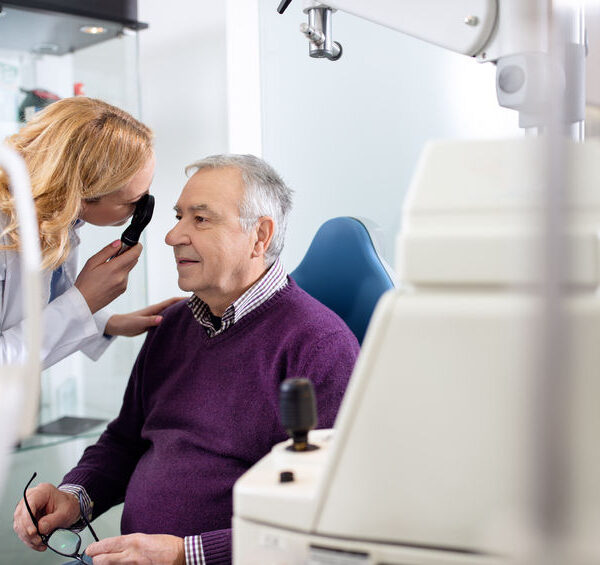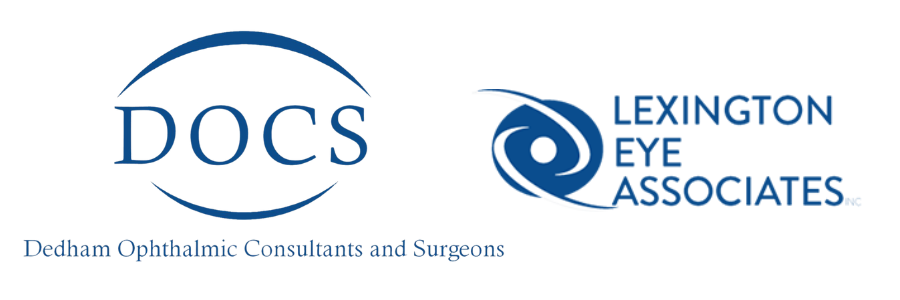
We provide our patients with the most comprehensive eye examinations available using the latest technology in diagnostic and examination equipment. We take the time to listen to your concerns and then thoroughly check your eye health, risks and predispositions to ensure continued health.
What’s included in our comprehensive eye examination:
- Visual Acuity Testing: Measures your ability to identify letters or numbers on a standardized eye chart from a specific viewing distance.
- Refraction: Evaluation to determine your refractive error and issue an eyeglass prescription for reading, near and distance correction.
- Glaucoma Screening; Intraocular Pressure Measurement
- Evaluation of the conjunctiva, cornea, iris, retina and eyelids.
- Dry eye evaluation
- Determination of cataracts
- Dilation
- Pachymetry: Measurement to determine corneal thickness
- Gonioscopy: Painless examination to look at the front part of your eye (anterior chamber) between the cornea and the iris to see whether the area where fluid drains out of your eye (called the drainage angle) is open or closed
- Retina evaluation to determine if there is anything related to aging, diabetes, high blood pressure, high cholesterol or other general medical and health problems that might affect your eye
If you are found to have glaucoma, cataracts, retina or other eye conditions that require follow up, your doctor will discuss his or her assessment and may recommend that you be seen by a specialist or order further testing.
Testing may include the following:
- Visual Field (Used to determine any visual field defects by testing your peripheral and central vision which can be damaged due to glaucoma, tumors or other visual field defects
- Optical Coherence Tomography (OCT): Images may be taken of the optic nerve, macular or anterior segment, depending on your medical diagnosis
- Corneal Topography: Non-invasive medical imaging to map, monitor and measure changes that may occur to the shape and integrity of the cornea
- Biometry or Ascan: Non-invasive testing to determine an intraocular lens (IOL) power for cataract surgery
- Photography: Anterior segment and fundus photography to document and monitor eye conditions
- Lipiview Testing: To determine meibomian gland dysfunction
Our eye exams are much more than sitting down and reading a wall chart. Because we work to ensure your eyes are at optimal health, we test for numerous conditions, go over your family history of eye diseases, and more. Beyond just renewing your prescription and getting fitted for glasses, these exams are one of the several ways Dedham Ophthalmic Consultants and Surgeons works with you to ensure excellent eye health.
We also offer contact lens evaluations in addition to comprehensive examinations with our optometrists, Drs. Valentini and Namaranian. If you wear contact lenses, please indicate that you are a contact lens wearer when you call to schedule so we may properly schedule your visit. Contact lens evaluations are separate from the comprehensive evaluations and require additional time and are not billed to insurance and payment is due at the time of services are provided.
How frequently should a person have their eyes examined?
Most patients can be seen every one to two years, depending on their eye health, personal and family history.
Tip to prepare for your eye examination.
If you have coverage under a Vision Plan, you will need to indicate this at the time of scheduling so we may verify your coverage prior to your visit and to determine if our office participates in your plan.
DOCS does not participate in all Vision Plans, therefore, it is imperative that you understand your coverage prior to your visit and be scheduled with the appropriate doctor. DOCS does participate in many health plans. It is your responsibility prior to your visit to request a referral for coverage from your primary care physician if your plan requires one, otherwise, we may request that you sign a referral waiver in order to be seen.
You will receive a confirmation call or email three days prior to your appointment. If you are a new patient, you will be emailed or mailed a new patient packet to complete and bring the paperwork to your visit. Plan to arrive at the office a few minutes before to your examination to check in, update your medical history, process your co-payment or to provide any updated demographic or insurance information. Please note, we do require a photo ID and a copy of your insurance card(s)
Please plan to be at the office for at least one and a half to two hours, bring sunglasses and/or a driver as dilation affects individuals differently and you may not be comfortable to drive afterward. Note that dilation will affect your up close vision for reading, television or computers and may last up to 6-12 hours after your appointment.
